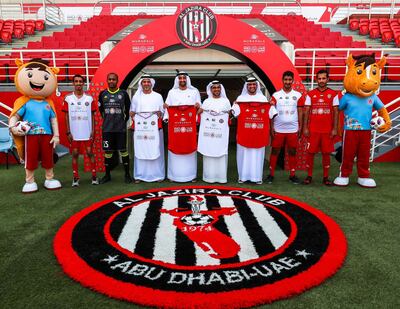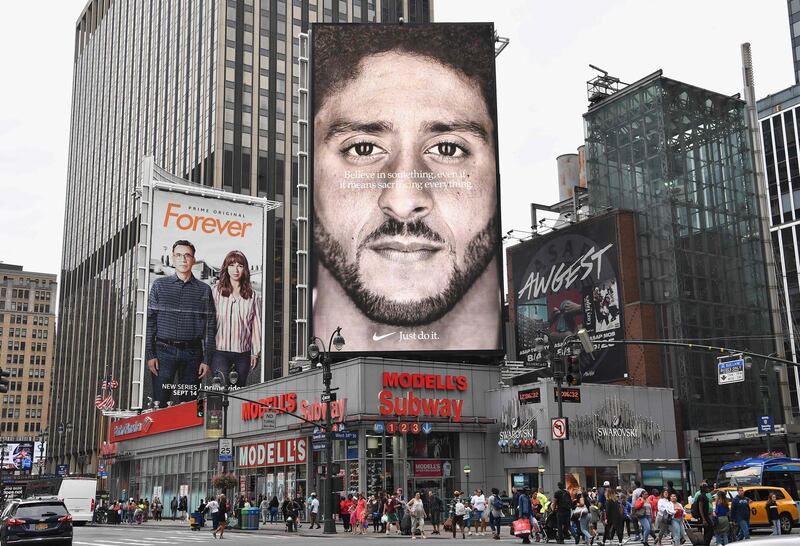Whether it is banning plastic straws or wading into political debates, businesses are increasingly aligning themselves with political messages to attract more customers and encourage loyalty.
Research revealed that for a significant number of UAE consumers, the quality and value of a product is not all a company is judged on – brands are expected to express opinions too.
YouGov, a market research company, collected data from more than 1,000 people in the UAE between November 5 and 12. The study found that 63 per cent of respondents felt it was important for their favourite brands to “have a point of view” on issues facing society. Only 34 per cent said it was not.
Almost half the respondents said they were more likely to buy a brand’s products if they agreed with a stance it took. But alignment with certain opinions also carries risks. Four in 10 respondents said they would stop buying a brand’s products if it expressed a view they personally disagreed with.
In response to a separate question, almost a third said brands should not take positions on social or political issues at all.
“Social media plays a part because brands recognise people go there to be engaged and comment, on Facebook in particular,” said Euan Megson, who runs Action Global Communications, a public relations company in Dubai.
“So much of that is driven by what’s trending, what’s viral, so there is an allure for brands to become a part of, or even steer, the conversation.
“But this also presents a bit of a tightrope for brands to walk.”
He said strategies such as the recent Nike campaign, fronted by Colin Kaepernick, the American football player who began a protest movement when he refused to stand during the US national anthem, are “morally sound but still high risk”.
Addressing a divisive issue can provoke a backlash from a large number of potential customers. Companies must also be wary of appearing cynical by “jumping on a bandwagon” simply to boost profits, he said.
Getting it right, however, can be lucrative. Nike’s advert has been republished thousands of times at no cost and sales have gone up, despite some customers posting videos of them setting fire to their trainers with the hashtag #JustBurnIt.
UK supermarket Iceland, which recently had its Greenpeace-backed Christmas advert about the effect of palm oil farming on orangutans banned for being too political, also benefited from free publicity. The advert has been viewed more than five million times on YouTube.
_______________
Read more:
WATCH: Colin Kaepernick stars in new Nike 'Just Do It' advertisement
Airbnb to remove West Bank settlement rental listings
Comment: Nike advertisement featuring Colin Kaepernick is all about profit, not protest
Pepsi apologises to Kendall Jenner for advertisement backlash and drops the commercial
_______________
“There’s a load of data out there that shows how millennials in particular are increasingly selective about brands that align with their moral gauge,” Mr Megson said.
“So it does present a quandary. In certain situations where consumers expect brands to have a voice, silence can be deafening – saying nothing is riskier than airing a voice.”
Last week, Airbnb became embroiled in its own controversy after it said it would remove property listings of homes in Israeli settlements in the occupied West Bank.
The move won praise from Palestinians and human rights campaigners, but it was called shameful by Israel, which threatened legal action, while others accused the company of anti-Semitism.
Last year, Pepsi pulled a campaign featuring Kendall Jenner, the model and reality TV celebrity, after it was accused of trivialising protest movements and issues such as US police brutality in what was widely seen as a public relations disaster.
Companies are generally wise to be averse to risk when it comes to addressing social or political issues, according to Gregg Fray, co-owner of Seven Media, a PR agency in the UAE that advises brands including Formula One, Manchester City Football Club and Rolls-Royce.
He said the rule particularly applied in the Gulf, where there are “boundaries and cultural sensitivities to be respected”.
But he does advise companies to “have a voice” where it is relevant. This is supported by the YouGov research, which found the public is far more accepting of a company taking a stance on an issue if the topic is “relevant to the brand itself”.

“There is more synergy than ever between brands, customers and society in general due to conversations on social media,” Mr Fray said.
“So there is opportunity to capture the public spirit with opinions, to help make a difference in rapidly-changing societies and be seen to be on the pulse with what is happening.”
The Special Olympics in Abu Dhabi, which Seven Media is promoting, has successfully stimulated change by inspiring brands and businesses to be more inclusive of disabled people.
“These organisations are putting their money where their mouth is and leading by example, so it is much more than just PR and people respect that,” Mr Fray said.
“Customers are savvy enough to see what’s just a cynical attempt to get the name of a brand into the media these days.”
Among the issues the public thought were most appropriate to talk about in marketing campaigns were the environment, education, human rights and health, according to the YouGov survey.
Declaring a political allegiance was among the least acceptable topics to the UAE public, the research revealed. Kerry McLaren, of YouGov, said: “Our data suggests that while people want brands to take a stand on issues, they are also unsure of a brand’s true intention for doing so, with half of them suggesting it’s mostly to gain publicity.
“Communication is evolving, but at the same time so is consumer opinion, with customers being watchful of the brands they purchase from.
“It is therefore crucial for brands to create their marketing strategies around conversations that are authentic and help cement their reputation with customers in a way that seems sincere.”






